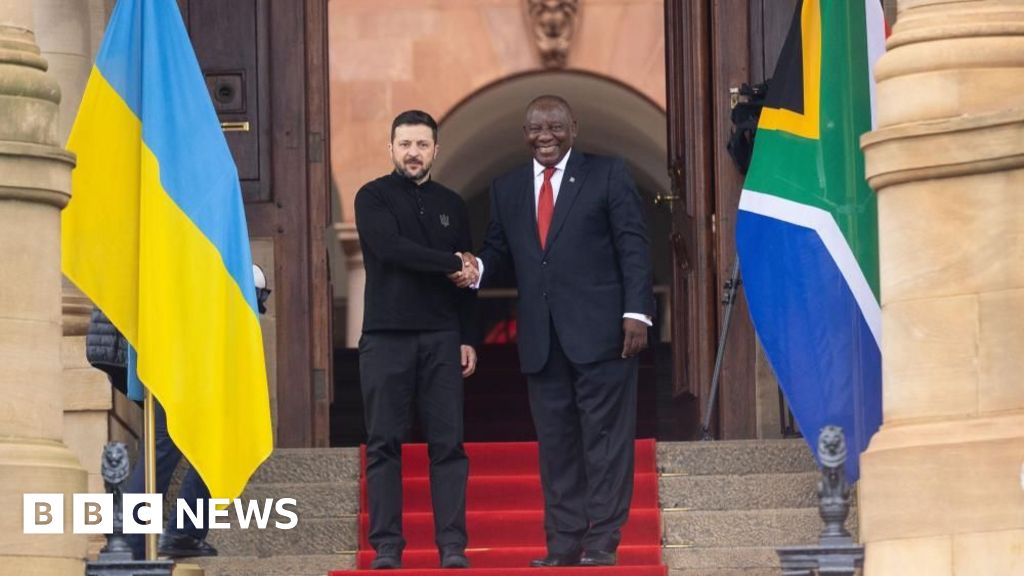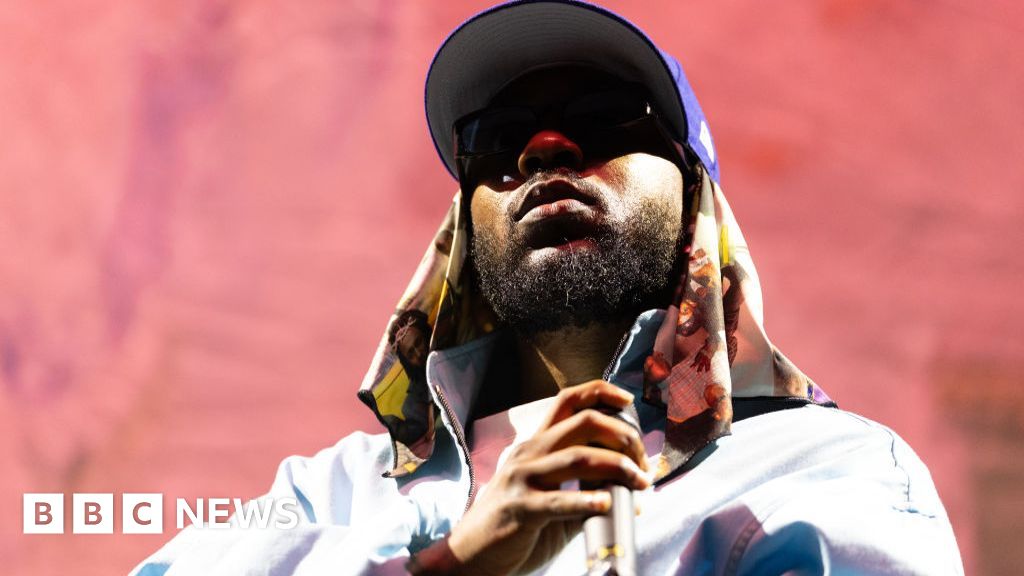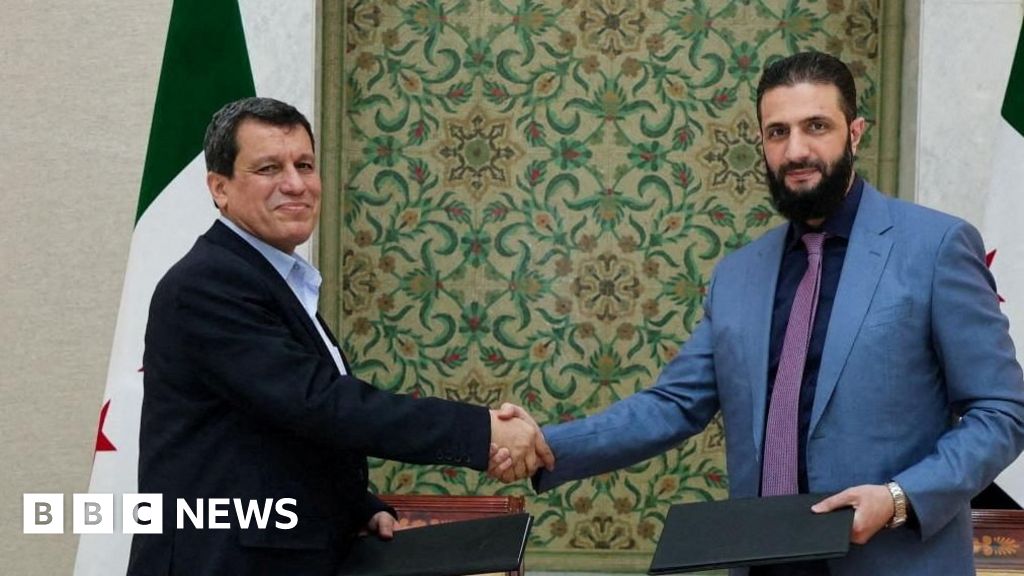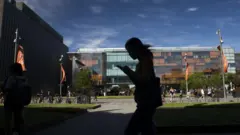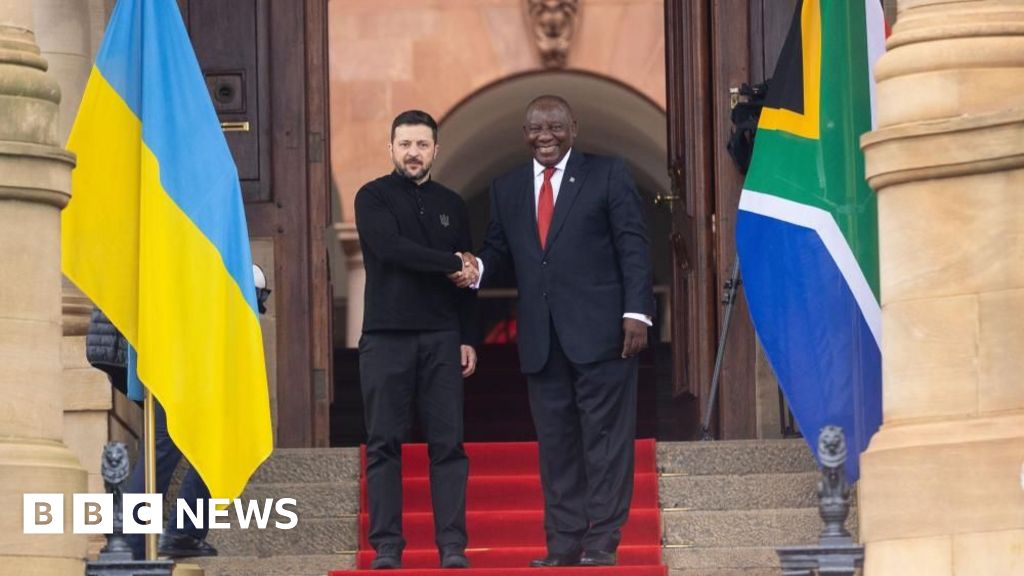
Ukraine’s President Volodymyr Zelensky has cancelled part of his first visit to South Africa after an overnight Russian missile and drone attack on Ukraine’s capital Kyiv.
At least eight people were killed and more than 80 injured, including children, in the attack, local officials said.
Zelensky said in a post on X that he would return to Ukraine “immediately” after meeting his South African counterpart Cyril Ramaphosa as part of his trip to ramp up diplomatic efforts.
He added that rescue operations were ongoing following the overnight attack and there was “significant destruction”.
“It has been 44 days since Ukraine agreed to a full ceasefire and a halt to strikes,” he continued, referring to an earlier agreement between the US and Ukraine in March over a proposed temporary ceasefire. “The strikes must be stopped immediately and unconditionally.”
Zelensky’s visit to South Africa marks a diplomatic breakthrough for the Ukrainian leader in his efforts to counter Russia’s growing influence in Africa.
The state visit would have been unimaginable just two years ago, when President Ramaphosa led a delegation of African leaders to Kyiv on a self-styled peace mission.
At the time, South Africa’s refusal to condemn Russia’s invasion of Ukraine was a source of frustration for Kyiv.
But the geopolitical landscape has fundamentally changed since that meeting, and both countries now have a lot more in common.
Both find themselves increasingly at odds with Washington.
The US was one of Ukraine’s closest allies until the re-election of Donald Trump in November. Now Ukraine is keen to broaden its pool of international partners – particularly in Africa where many countries have strong links with Russia.
South Africa has also suffered from strained relations with Washington, which has expelled its ambassador and removed aid funding.
South Africa says its non-aligned position puts it in a prime position to help bring about a peace deal with Russia.
Trump on Wednesday accused the Ukrainian leader of harming peace negotiations, after Zelensky said Kyiv would not recognise Russian control of Crimea.
Ukraine has long said it will not give up Crimea, a southern peninsula illegally annexed by Russia in 2014.
Trump claimed a deal to end the war was “very close”, but that Zelensky’s refusal to accept US terms “will do nothing but prolong” the conflict.
Earlier, US Vice-President JD Vance laid out the US vision for a deal, saying it would “freeze the territorial lines […] close to where they are today”.
He said the deal would mean Ukraine and Russia “are both going to have to give up some of the territory they currently own” – without specifying what geographic concessions would have to be made.
When asked by reporters at the White House about whether the administration was looking to recognise Russia’s sovereignty over Crimea, Trump said he just wanted to see the war end.
Recognising Russia’s illegal occupation of Crimea would not only be politically impossible for Zelensky to accept, it would also be contrary to post-war international legal norms that borders should not be changed by force.
